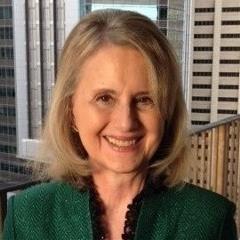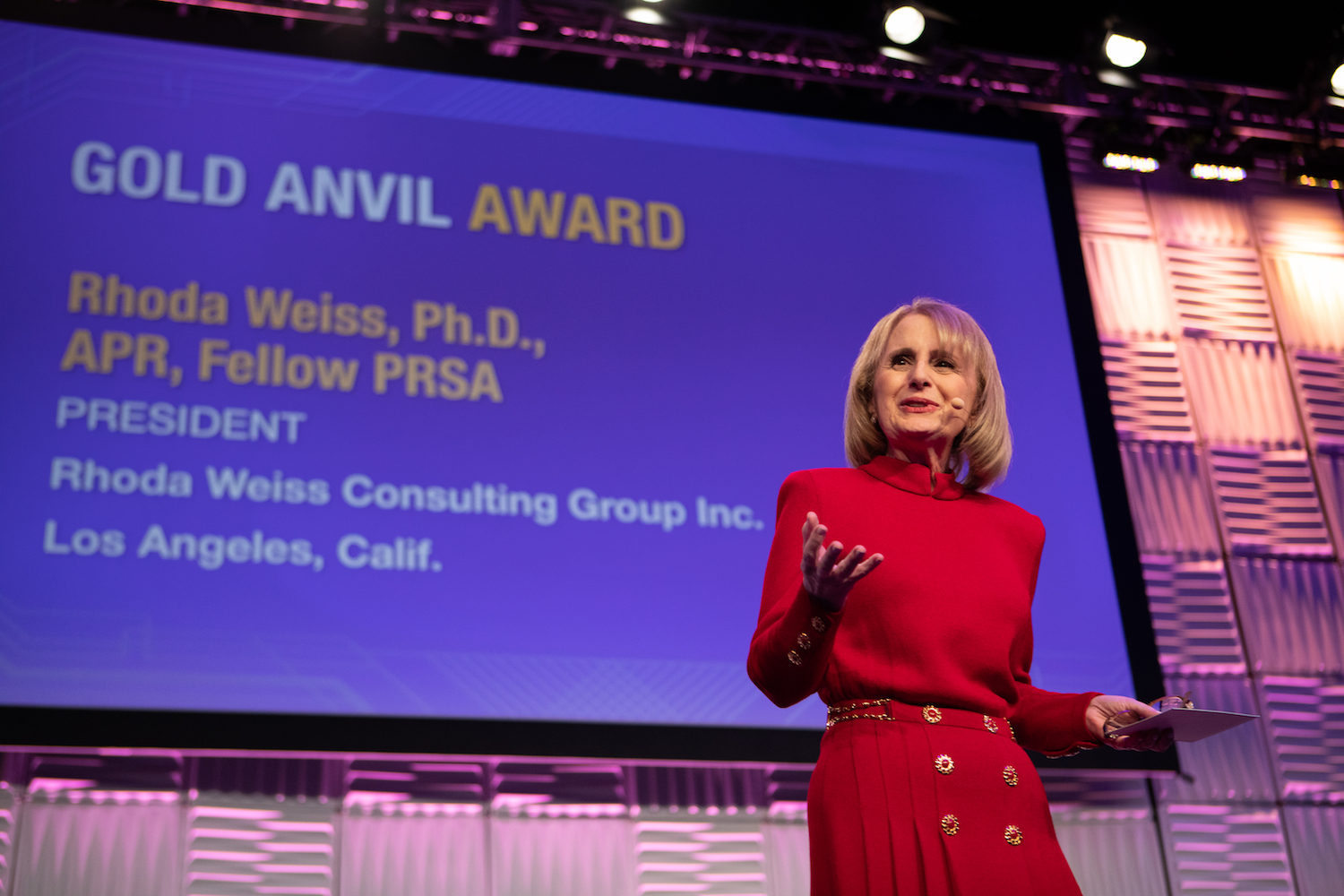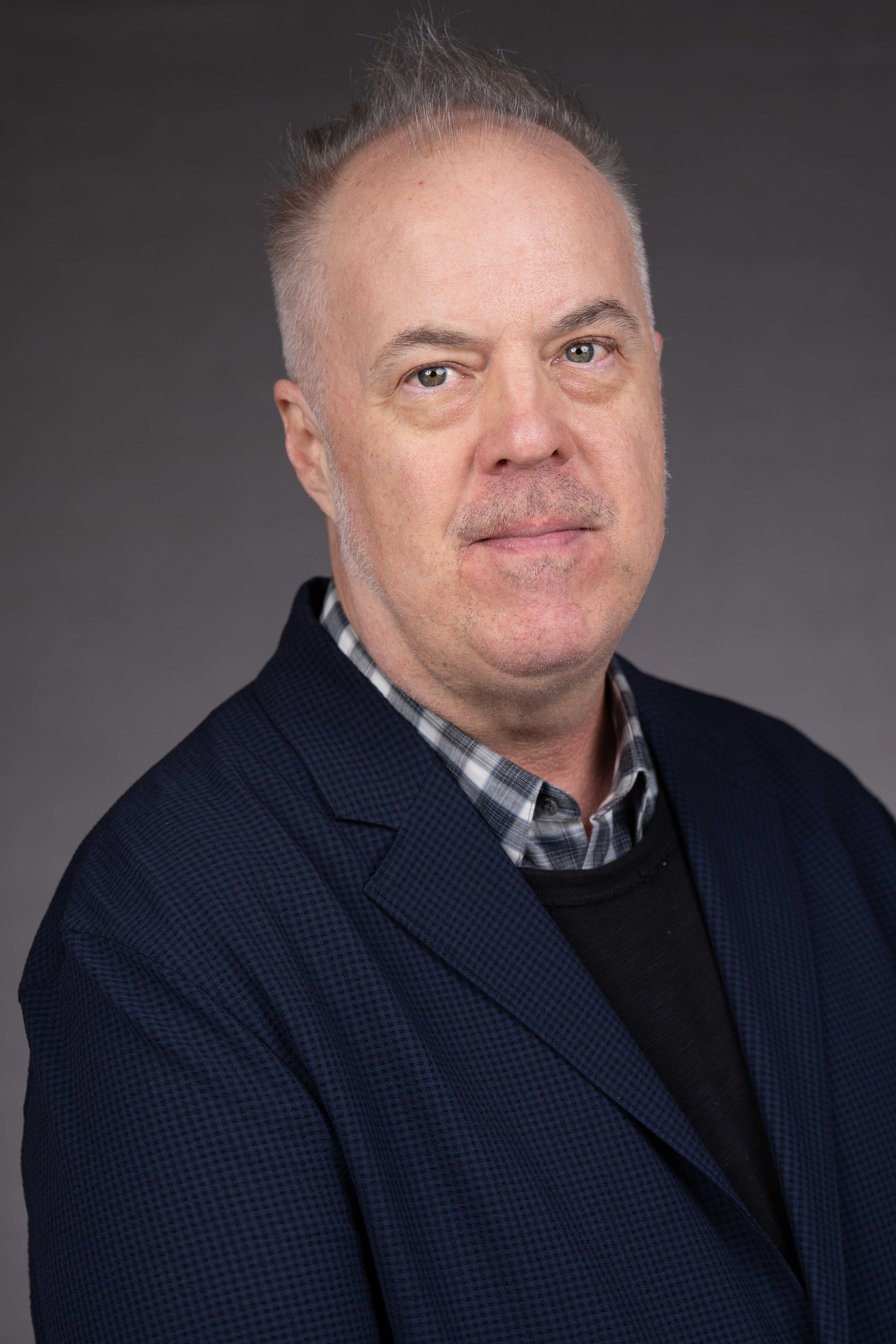Rhoda Weiss, APR, Fellow PRSA, on Establishing Executive Presence
By John Elsasser
September 2020
Name: Rhoda Weiss, Ph.D., APR, Fellow PRSA
Current status: Rhoda Weiss Consulting Group
Location: Los Angeles
Career highlights: 2019 Gold Anvil Award, PRSA Health Academy Lifetime Achievement Award and the David Ferguson Award. Outside PRSA, the U.S. Air Force Distinguished Public Service Award, its highest civilian honor.
Favorite downtime activity: Searching, identifying and learning about hidden heroes throughout history, who never got their due, and sharing that.
Dinner guests: My parents, relatives and friends who have passed, and my family killed in the Holocaust, who we never got to know, love and learn from.
Favorite inspirational quote: “Be afraid to die until you’ve won some victory for humanity” at Antioch College in 1859 by Horace Mann, educational reformer, ardent abolitionist, and defender of women’s rights, equal pay and civil rights.

When did you know public relations was the career for you?
I realized our role as strategists and storytellers carries a responsibility for bettering society — engaging, interacting and helping lead every aspect of organizations, while using our skills as communicators, strategic thinkers and guide for the corporate conscience.
While I expanded into marketing, branding, coalition building, executive adviser and other roles, much is based on those core foundations of strategic public relations. That will never change.
What role has PRSA played in your career?
PRSA staff, members and students have been crucial to every aspect of my career. Those relationships, endless support and opportunities that have resulted are beacons of light, and forever part of my life.You served as chair and CEO in 2007. What inspired your involvement in PRSA’s leadership?
Leaders and members inspired and challenged me to take on leadership roles and engage others. As chair, I called on hundreds of members, matching their passion to specific projects. Bringing together amazing expertise of these volunteers nationally was inspiring and their accomplishments humbling.You received the Gold Anvil last year. What does this honor mean to you?
To be recognized for one’s life work and contributions to the profession from an organization and its members and staff that are like family to me, and be part of an esteemed group of recipients I’ve admired throughout my career, is a great honor I will always cherish.As a communications executive, you’ve been on the frontlines of the COVID-19 response. Can you tell us about your efforts?
A decade ago, I formed and continue to chair AMA Executive Summit — 75 communications and marketing executives from the nation’s largest health systems. We meet twice annually to share expertise, perspectives and learn from each other’s insights.
In March, as the pandemic widened, I started twice-weekly conference calls for us to tackle challenges, find solutions and share resources. So far, we’ve shared over 500 best practices, communications plans, creatives and tactics.
As COVID-19 shutdowns began in March, initial reports told of many delaying or going without critical medical care for other illnesses or injuries.
Fearful of facing a “silent epidemic” in a county of 10 million, I engaged Summit members from Los Angeles’ six largest, competitive health systems to form BetterTogether.health. Each pivot- ed existing resources for a multimedia public service campaign, “Life may be on pause. Your health isn’t.” The long-term effort encourages people to put health first and access care when needed.What are some of the ever-evolving best practices for PR professionals — regardless of their specialty area — that you're seeing and sharing in these past several months?
Creating new platforms for listening to and engaging with stakeholders — such as rolling pulse surveys, community conversations, virtual events, new blogs, and virtual rounding. Acting to address inequities among diverse populations by strengthening Diversity, Equity and Inclusion programs. Strengthening support to improve social determinants of health. Helping people cope with social and work isolation through buddy systems, mental health services and communications. Expanding use of TikTok, chatbots and other social channels and digital tools to improve consumer experiences. Creating “kits” for health safety, business and school reopenings, and recovery. Online COVID assessment tools. Asking nonprofit board members to call community leaders and donors to provide updates. And lots more.
What has impacted you the most in your COVID-19-related work this year?
Knowing our role is critical to taming the epidemic. With facts and science evolving and misinformation running amok, words and actions help save lives and calm fears. Our Executive Summit leaders working 24/7 are never too tired to meet, addressing every imaginable pandemic issue, sharing practices others can adopt.
Prominent CEOs join our calls to talk about challenges, lessons learned, what’s next, and value our critical role in expertly dealing with issues of prevention and safety, hope and healing, life and death, care and caring. In Los Angeles, there have been inspiring acts of competitors turning over promotional brand assets in a shared public service campaign, and we’ve learned everyone’s committed to collaborating in the long term in the public interest. This pandemic has been brutal, but it also brought out the best in our profession.
What career advice do you give now, particularly to new professionals?
Invest in your future. Start a lifelong learning bank account as “career insurance” for professional development, including conferences C-Suiters attend. Get an advanced degree (finished my Ph.D. 30 years post master’s degree). Stay ahead of the curve. Be an avid reader, observer and adopter of trends and techniques in public relations, marketing, business and finance. Embrace diversity and multicultural communications and do work that contributes to the common good: If it is to be, it is up to us—our skills create a unique opportunity to make the world a better place. Secure multiple mentors and become one. Mentors often need “mentoring” in evolving technologies and techniques.
What advice has helped guide you throughout your career?
On Day One of my first communications position, the health system CEO asked me to describe my role there. “I’m a public relations professional,” was my reply. “No,” he said, “You’re a health care executive, specializing in public relations.”
From entry-level to CEO and chair positions, I never thought of myself as anything less than a top executive equal in value, contributions, knowledge, strategic thinking and business acumen to anyone else in the C-suite.



